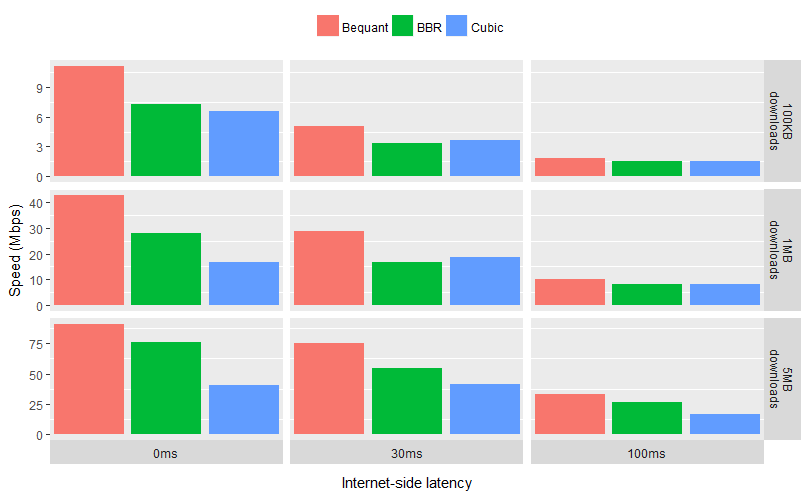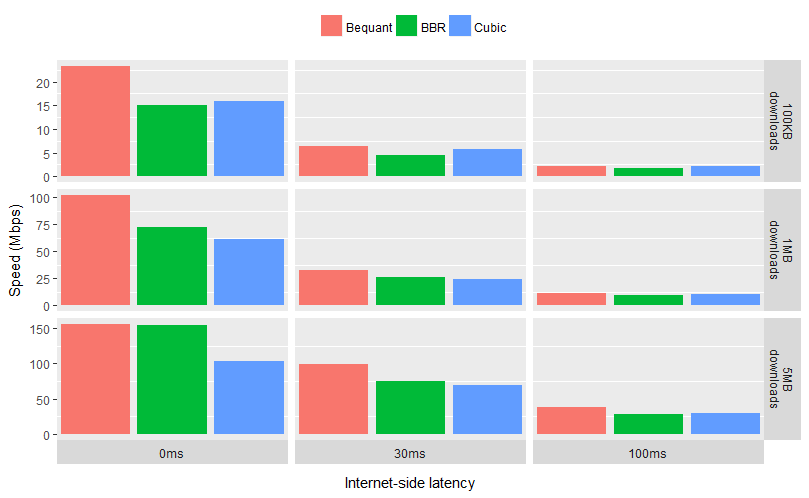ISP & WISP Solutions Providers
Bequant TCP Acceleration
Faster downloads and uploads on your network and up to a 100% performance increase.
Bequant TCP Acceleration Product
- Do you want faster downloads and uploads on your network?
- Do you want up to 100% performance increase in some cases?
- Do you want a network accelerator that is easy to deploy and manage?
- Do you want inexpensive hardware and low monthly fees?
- Do you want reporting that proves the network is faster?
- Do you want a no commitment trial process?
If so, Bequant TCP Accelerator (BTA) is the product for you!
How does it work?
As an in-line transparent TCP proxy (as an RFC 3135 Local ACK PEP), the BTA manages to make data appear closer to TCP clients, and closer, with TCP, means faster delivery. The Bequant TCP stack detects congestion based on the measured delivery rate, as described in our recently granted patent. The most widely used TCP implementation, CUBIC, the current default in Linux, detects congestion with packet losses, but also with measured delay at the connection start. Other widely-used TCP variants in Internet are Google’s BBR TCP, which also detects congestion based on delivery rate measurements, and Akamai’s FastTCP, mainly based on network delay measurements. Our improved congestion detection algorithm allows our TCP to be more aggressive when there is no congestion and to back off in real congestion, being able to carry out this discrimination in challenging environments: with wireless links, packet losses or large network delays. The Bequant TCP adapts itself to different network conditions thanks to its self-tuning learning algorithm, but is especially suited whenever wireless links are present (WiFi, LTE, 3G, WiMax…), where it performs better than other TCP implementations, including Linux Cubic, Akamai’s FastTCP and Google’s BBR.

Download speed (in Mbps) with a 4G LTE access network with minimal packet losses, for different download sizes (100 KB in the first row, 1 MB in the second row and 5 MB in the bottom row), and for different Internet-size delays (with no delay in the left column, with 30ms delay in the middle column, and with 100ms delay in the right column).
Wireless Network Comparison with .5% Random Loss Results
The following chart shows that the advantage of the Bequant TCP over Cubic and BBR remains in 4G LTE networks with losses. The Bequant TCP showed no significant increase in retransmissions over the other variants and the average RTT measured from the BQN node to the client was very similar to that measured without losses.

Download speed (in Mbps) with a 4G LTE access network with 0.5% random packet losses, for different download sizes (100 KB in the first row, 1 MB in the second row and 5 MB in the bottom row), and for different Internet-size delays (with no delay in the left column, with 30ms delay in the middle column, and with 100ms delay in the right column).

